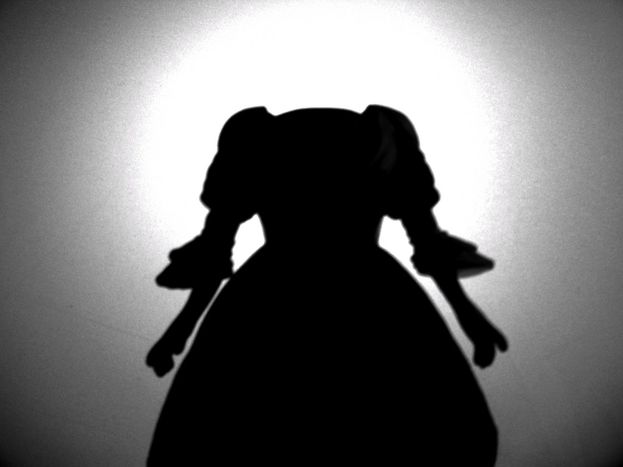
Austria: an undiscovered land
Published on
Translation by:
Gilhean SlaterHow much do we really know about Austria? After the results of yesterday’s legislative elections organized by the left-right coalition, we know that one in four Austrian citizens votes extreme right. Apart from that, we don't know much else.
One day recently I found myself gazing at a map of Europe pinned on my wall. After studying it closely I came to the following conclusions: Germany currently holds all of the power in Europe. Spain, Portugal, Greece and Italy are the Mediterranean countries which we are always hearing about (sometimes good news sometimes bad). France is my homeland, the UK is the UK, Scandinavian Countries are, well, Scandinavian Countries and the remaining member states get a bit of media attention now and again. This leaves one country, smack bang in the middle, a country with 8 million inhabitants yet a country which no one ever speaks about: Austria.
With Germany as their main trading partner we would expect Austria to suffer the effects of its neighbor’s economic power. Austria, however, is one of the EU Member States with the highest GDP rates. Furthermore, at 4.8% Austria’s unemployment rate is the lowest in Europe (beating even Germany who currently have an unemployment rate of 5,4%).
Because of my strong interest in Germanic culture and being intrigued by the silence shrouding the country, I decided to investigate further. After all, a country which produced the likes of Freud, Stefan Zweig, Gustav Klimt, Michael Hanekem, Schwarzenegger and of course- Red Bull- can’t be that boring, can it?
a quick history lesson
Studying Austria’s history I learned that “like most European countries Austria has a rich history, full of interesting twists and turns. Certain characteristics of Austrian mentality – an appreciation for beauty and culture for example – have endured and have played an important role in the evolution of the country over the centuries”. The Habsbourg Monarchy also contributed immensely to maintaining the power of the Austrian empire.
Austria boasts a rather colorful history (in 1914 the Archbishop François-Ferdinand , first in line to the Austrian Throne, was assassinated in Saravejo kicking off the first World War – then there was the onset of civil war in 1934 followed by the invasion of the German army in 1938 and the occupation by their powerful allies after the 2nd World War). In 1955 a Treaty of State bound Austria to neutrality, making it impossible for it to join in the common cause.
Austria used the break-up of the Soviet Block to its advantage and applied to become a member of the European Union in 1989, becoming an official member state on the 1st of January 1995. Very soon after, Austria revealed its real motivations for joining: to become a central Hub between Eastern and Western Europe.
austrians know how to keep a secret
In any Austrian related news we constantly hear of the uproar over the issue of Banking Secrecy, as reported in BFM and Le Temps.
Austria has essentially turned itself into an Island, refusing to join its European neighbors and agree to the confidentiality agreement they have all signed. With Luxembourg City recently jumping ship and consenting to the agreement, Vienna is the only European Capital left opposed to the free sharing of bank account information.
It would appear that bank account information is not the only thing Austria likes to keep under wraps. Since the famous Kampusch adduction case in 1998 - 2006, and the release of a film based on the story in February 2013, nothing seems to have attracted the interest of the media, apart from perhaps a few Austrian professional skiers who have made a name for themselves.
austria is to germany as belgium is to france
As well as the apparent similarities between Germans and Austrians, there are also great differences. Even if they are linked by the same history (more or less), speak the same language (albeit with different accents), watch the same TV shows and films (most Austrians have abandoned the national broadcasting service ORF and opted for more international channels such as Sat1 or RTL), both nations still seem to dislike each other, just as the French look down their noses at the Belgians and vice-versa.
A simple joke sums up the attitudes of the two countries. “What is the difference between a German and an Austrian? A German would like to understand the Austrians, but doesn’t know how. An Austrian knows how to understand the Germans but doesn’t want to.’’ The book Streitbare Brüder – Österreich: Deutschland / Kurze Geschichte einer schwierigen Nachbarschaft by Hannes Leidinger,Verena Moritz et Karin Moser deals with this topic, re-opening the discussion on German-Austrian relations.
Over recent years Austrian singers have had to adapt their accents to a more standardised German in order to remain appealing to audiences accross the border.
The Germans should perhaps re-think their snobbish attitude towards the Austrians however. After-all, if Austria were to change its political stance on bank account information “this would certainly cause problems for the thousands of Germans who have Austrian bank accounts” according to Slate. Austria has become a sort of ‘safe’ for the Germans. Around 23 million euros of German origin are sitting in Austrian bank accounts. This makes up over half of all foreign deposits to Austrian banks.
Furthermore, 40% of Austria’s tourists are German. More often than not they come to Austria to “escape and revitalise” which is, incidentally, the slogan on the official Austrian Tourism website.
Guillaume Ferrand
Translated from L'Autriche, un pays qui s'ignore ?



